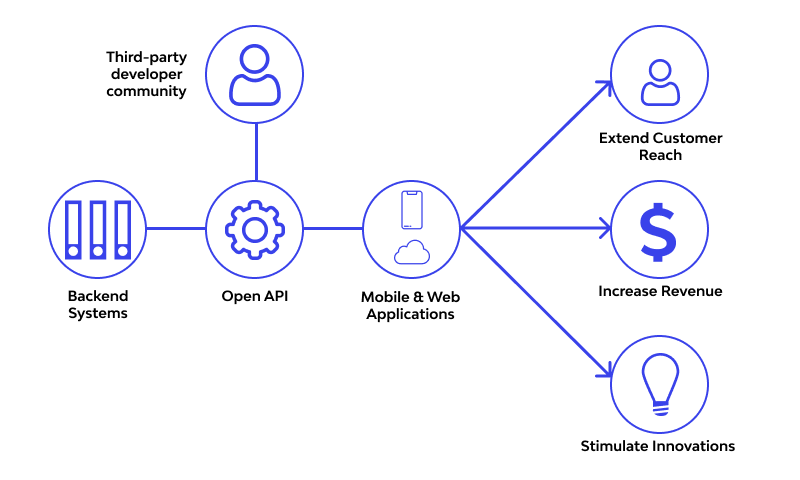Open API
What is Open API
Definition:
An Open API (Application Programming Interface) is a set of rules, protocols, and tools that allows developers to access and interact with the functionality or data of a software application, platform, or service. Unlike proprietary APIs, open APIs are publicly available and accessible to developers, encouraging collaboration, innovation, and integration across different systems and applications.
Analogies:
Think of an Open API as the universal translator in the digital world. Similar to how a universal translator enables communication between people speaking different languages, an open API facilitates seamless communication and interaction between different software applications, regardless of their underlying technologies or architectures.
Further Description:
Open APIs provide standardized interfaces and endpoints that enable developers to retrieve, manipulate, and exchange data or perform specific actions within an application or service. They promote interoperability, flexibility, and extensibility, allowing developers to build new functionalities, integrate third-party services, and create innovative solutions without needing to understand the intricacies of the underlying systems.
Key Features of Open APIs:
- Standardization: Open APIs adhere to industry standards and conventions, making it easier for developers to understand and utilize them across different platforms and programming languages.
- Documentation: Open APIs are accompanied by comprehensive documentation, including usage guidelines, endpoint descriptions, authentication methods, request/response formats, and sample code snippets, to help developers integrate with the API effectively.
- Authentication and Security: Open APIs employ authentication mechanisms such as API keys, OAuth tokens, or JWT (JSON Web Tokens) to ensure secure access and protect sensitive data from unauthorized access or misuse.
- Rate Limiting and Throttling: To prevent abuse and ensure fair usage of resources, open APIs often implement rate limiting and throttling mechanisms, restricting the number of requests that can be made within a certain time frame.
- Versioning and Deprecation: Open APIs support versioning mechanisms to manage changes and updates over time, allowing developers to adapt their applications to new API versions while maintaining backward compatibility with existing integrations.
Benefits of Open APIs:
- Interoperability: Open APIs facilitate interoperability and integration between disparate systems, enabling seamless data exchange and collaboration across applications and platforms.
- Innovation and Extensibility: By exposing their functionality and data to external developers, organizations can foster innovation, encourage the development of third-party applications and services, and extend the capabilities of their own products and platforms.
- Ecosystem Growth: Open APIs help create vibrant developer ecosystems around products and services, attracting developers, partners, and customers, and expanding the reach and impact of the underlying platform.
- Time and Cost Savings: Leveraging open APIs allows developers to accelerate development cycles, reduce development costs, and focus on building differentiated features and experiences, rather than reinventing the wheel.
Challenges in Implementing Open APIs:
- Security Risks: Open APIs may pose security risks such as data breaches, unauthorized access, and API abuse if not properly secured and managed.
- Governance and Compliance: Organizations must establish clear policies, guidelines, and governance frameworks for managing and monitoring open APIs to ensure compliance with regulatory requirements and industry standards.
- Maintaining Compatibility: As open APIs evolve and new versions are released, organizations must carefully manage backward compatibility and deprecation of old API versions to avoid breaking existing integrations.
Key Takeaways:
- Open APIs play a pivotal role in enabling seamless integration, collaboration, and innovation in the digital ecosystem.
- Key features of open APIs include standardization, documentation, authentication and security, rate limiting, versioning, and deprecation.
- Benefits of implementing open APIs include interoperability, innovation, ecosystem growth, and time and cost savings, although organizations must address challenges related to security, governance, and compatibility.





